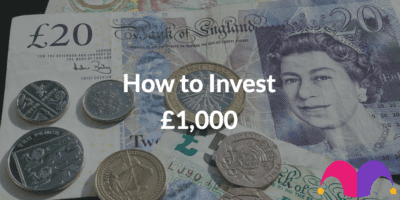So, you want to try your hand at stock investing? If that’s the case, then you’ll have only one aim in mind — to beat the stock market.
But is that actually possible? Let’s find out.
What does it mean to beat the market?
Beating the market involves generating a better return than that of other traders and investors.
There are various ways that a person can gauge this, but one way is to compare your returns to those provided by a major index like, the FTSE 100, for example. US investors commonly try to achieve the same aim by comparing their performance to the S&P 500.
With a little research, it’s possible to work out the average annual return of an index over time. According to IG Group, the total return (assuming that dividends are reinvested) for FTSE 100 investors over the past decade is +103.98%. If you made a better return than this, you could claim to have beaten the market.
Buying something like a FTSE 100 tracker fund, however, wouldn’t have allowed you to beat the market. In fact, after paying investment fees and tax on their gains, a fund investor would have made a real-life return below that 103.98%.
Basically, if you want to get serious about making market-beating returns, you must think about buying individual stocks.
[KevelPitch adtype=4578]
Is it possible to beat the market?
Devising a strategy to beat the market is tough work. It involves a lot of time, effort, and sometimes a lot of thumping the desk in frustration. And even after all that there’s no guarantee that all that hard graft will pay off.
But, that’s not to say it’s impossible. Investors just need to set their expectations and recognise how unlikely it is to start beating the market immediately after starting investing.
What percentage of investors beat the market?
It’s impossible to calculate how many investors make market-beating profits. But a report released in early 2022 shows how even the most educated and experienced people out there — active fund managers — struggle to get it done.
According to the S&P Indices Versus Active (SPIVA) scorecard, for example, “more than 95% of all domestic active stock fund managers…underperformed their respective S&P benchmarks in the past 20-year period through 2021”.
Four qualities an investor needs to beat the market
There are several key qualities that an investor needs if they want to make market-beating returns. These include:
1. Having the time and the motivation to do lots of research
Legend has it that the golfer Gary Player once remarked “the harder I practice, the luckier I get”. This quotation is tailor-made for investment.
The more you read, research, and learn, the better an investor you will become. Successful stock picking requires considerable dedication and effort. If you’re not inclined to put in the required time and elbow grease, you’ll lose money.
2. Being prepared to learn about the intricacies of accounting and valuation
Do you want to get your head around some of the complicated figures at the back of an annual report? Do you want to get a grasp on how to value a company’s share price?
A lack of inclination to become familiar with either will severely restrict your investment performance. And a lack of inclination to become familiar with both will mean investment ruin. Those with a fear of numbers need not apply.
3. Being willing to watch your stocks mysteriously slump in value
When you pick individual shares, you’ll almost always endure market volatility. Expect your hand-picked portfolio to diverge significantly over the short term from the overall stock market.
And if you’re terrified that one of your shares could lose half of its value for no reason, then individual stock picking isn’t for you.
4. Having the character to accept long-term market underperformance
The stock market offers no guarantees. While successful stock picking requires considerable dedication and effort, it’s not necessarily the case that considerable dedication and effort always lead to successful stock picking.
Despite your best efforts, there’s always the possibility of consistently underperforming the market. Can you accept the possibility that, say after five years, you won’t have beaten the market average?
What’s the alternative to beating the market through stocks?
If you fall short on any of the points above, then individual stock picking probably isn’t for you. And there’s certainly no shame in thinking that this whole stock picking game could be more trouble than it’s worth.
A sensible decision for many people is to buy a low-cost index tracker, like the FTSE 100 one mentioned above. If we use history as our guide, then, over the long-term, an index tracker will outperform all other forms of investment, the majority of managed funds, and most other private investors too.
Best of all, a tracker requires no time, skill, or ongoing maintenance. On an effort-to-reward basis, it outshines all other investment alternatives hands down, so it’s worth considering before you commit to buying individual shares.
Can you consistently beat the market?
It’s a fact of investment life that around 80% of all actively managed funds undershoot the stock market average over the long term. Given that most professional fund managers, with all their research, industry contacts, and experience can’t consistently beat the stock market, what chance is there for the beginner investor?
Don’t believe that just because the professionals fail, the amateur stands a better chance. It just isn’t the case. While the Foolish investor is more likely to take a longer-term view than the typical fund manager, there’s no guarantee they will be able to pick the right companies at the right price.
Strategies to beat the market
That’s not to say it’s impossible for investors to beat the market. Legendary investor and Berkshire Hathaway chief Warren Buffett didn’t amass a fortune north of $100bn by making average returns.
Besides, even if the chances of beating the market are low, it doesn’t mean that you shouldn’t take steps to give yourself the best chance to do this. Executing certain investing moves can still help you to make life-changing wealth.
For one, there’s no such thing as doing too much research, as suggested above. By reading as much as you can about a company, a sector, or the broader economy you increase your chances of making a great investing decision.
Those aiming to beat the market might also have to take more of a gamble with their capital. There’s a direct correlation between risk and reward, and those who are prepared to accept a higher chance of failure often make better returns that other investors. Remember, though, that this can be a dangerous game and the losses can stack up.
Having said all that, there’s another factor out of our control that significantly influences our ability to beat the market. That is luck. Those who do all the right things investment-wise still often fail to outperform other investors.
[KevelPitch adtype=151]




